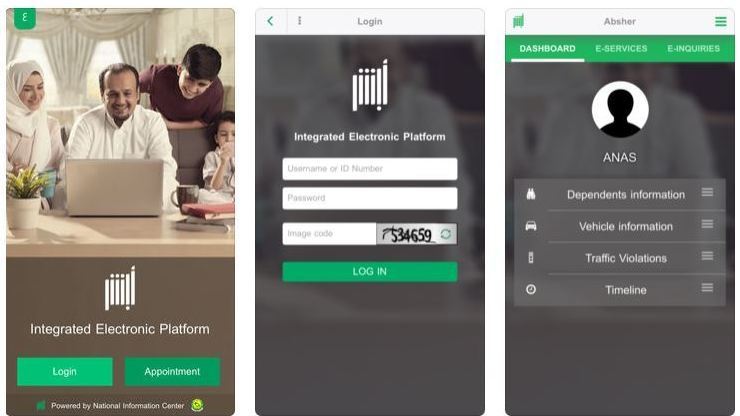This week, Sen. Ron Wyden, D-Ore., sent a letter to both companies asking them to remove the app. “Saudi men can also reportedly use Absher to receive real-time text message alerts every time these women enter or leave the country or to prevent these women from leaving the country,” he wrote.
In an interview with NPR on Monday, Apple CEO Tim Cook said he wasn’t aware of the app.
“I haven’t heard about it,” Cook said. “But obviously we’ll take a look at it if that’s the case.”
NPR also reached out to Google, but the company has not responded.
Apple and Google have faced previous controversies over apps in their stores. Both stores have policies banning inappropriate content such as the promotion of hate speech, graphic violence, bullying and harassment. The companies have faced some backlash over these policies, particularly around how they might impact small businesses.
Begum, of Human Rights Watch, says she can see how the companies might not have initially realized that the app could be used for monitoring women. “It has other services that are quite generic and normal government services,” she says.
Apple and Google have different systems for flagging inappropriate apps. Apple prescreens apps, and Begum says Google relies on its users to alert it about violations. But, she says, each company needs to boost scrutiny of government-supported apps, especially when they are created by repressive regimes.
“They should consider the human rights implications … especially when it’s offered by a government,” Begun says. “When they’re evaluating whether an app should be allowed … providers really should consider the broader context or the purpose of the app, how it’s being used in practice and whether it’s facilitating abuse.”
Ironically, Absher has also been helpful to a some women trying to escape the repressive Saudi regime. Begum says some women have managed to secretly change the settings in the app on their male guardian’s phone so that it allows them to travel.
However, she says, Google and Apple need to push back against the Saudi government and either disable the app entirely or disable the features that enable men to track women in their families. “By not saying anything, they’ve allowed the government to facilitate the abuse,” she says.
In his letter to Google and Apple, Wyden wrote: “It is hardly news that the Saudi monarchy seeks to restrict and repress Saudi women, but American companies should not enable or facilitate the Saudi government’s patriarchy.”
Copyright 2019 NPR. To see more, visit https://www.npr.org.
9(MDAxOTAwOTE4MDEyMTkxMDAzNjczZDljZA004))

9(MDAxOTAwOTE4MDEyMTkxMDAzNjczZDljZA004))
